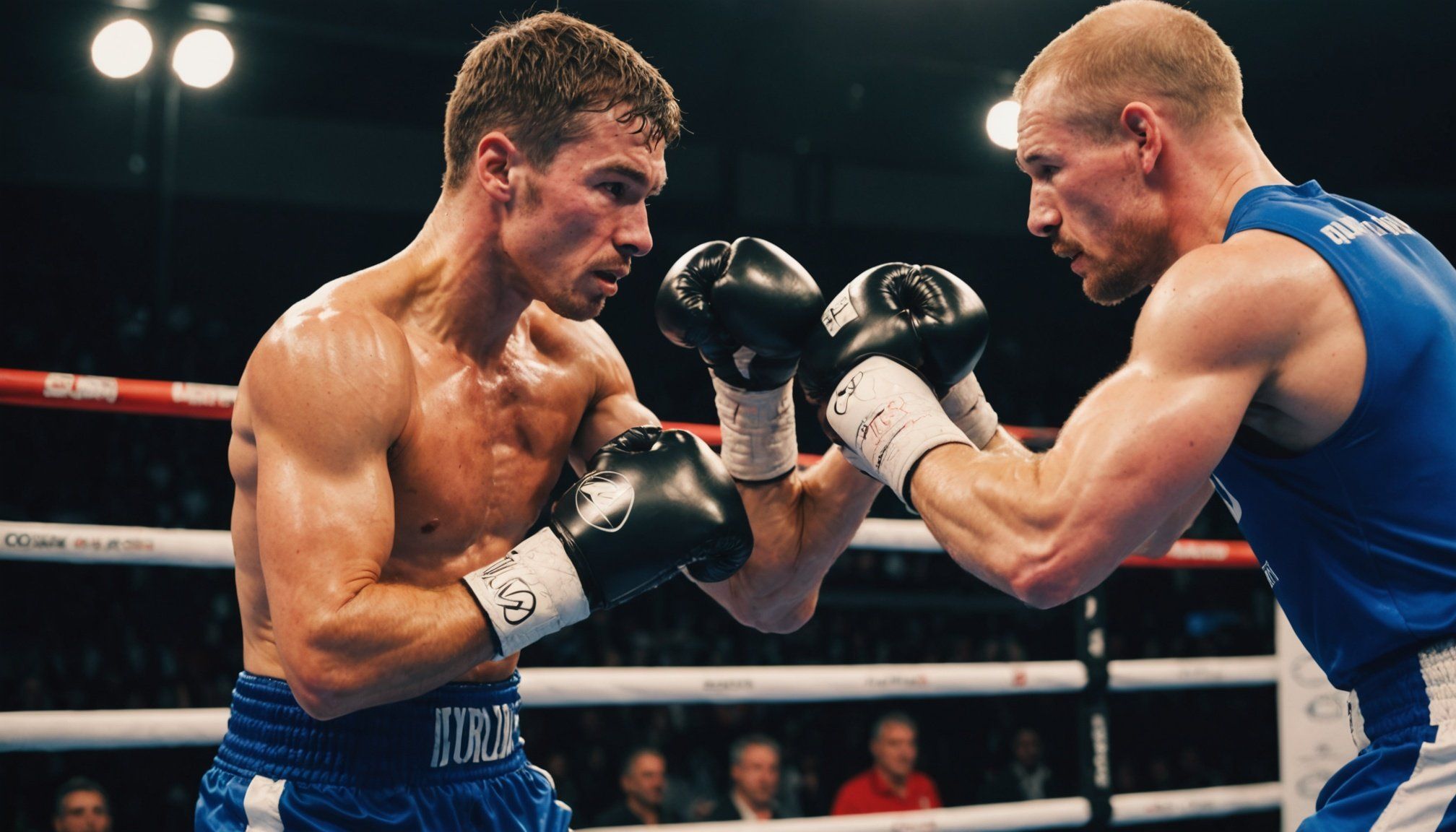Introduction to Sports Psychology for Boxers
Sports psychology has emerged as a pivotal component in the world of professional boxing. Understanding the mental facet of boxing is essential for athletes aiming to excel in high-stakes environments. The psychological resilience it fosters allows boxers to maintain their physical performance even under immense pressure.
In the realm of boxing mental training, building mental strength is equally important as physical preparedness. The unpredictable nature of a boxing match demands quick thinking, adaptability, and an unwavering focus. These capabilities are nurtured through strategic psychological coaching, which provides boxers with coping strategies and techniques to navigate challenges.
This might interest you : Key considerations for uk wrestlers choosing the ideal wrestling shoes
For boxers in the UK, there are unique challenges that make sports psychology particularly pertinent. The competitive landscape, coupled with the rich history of UK boxing, adds layers of pressure and expectation. Athletes must contend with both personal and external demands to succeed. Understanding these dynamics, sports psychology not only equips them to handle stress but also enhances their competitive edge, offering an invaluable toolkit for those who aim to enter the ring with mental resilience and poise. As such, sports psychology remains an integral part of a boxer’s training regimen, accentuating their potential both physically and mentally.
Mental Resilience in Boxing
Mental resilience is a crucial attribute for professional boxers, enabling them to withstand high-pressure situations. It is the ability to remain composed and adaptive when faced with adversity during matches. This skill is vital for maintaining performance and focus, thereby significantly influencing the outcome of a bout.
Also to see : Essential breathing strategies for uk fencers: control your heart rate and enhance performance in competitions!
Developing mental toughness involves a variety of coping strategies and stress management techniques. Boxers can employ methods such as controlled breathing, positive self-talk, and mindfulness to build their resilience. These techniques help manage anxiety and maintain clarity even under intense pressure.
Incorporating mental resilience training into regular routines is indispensable. It equips boxers with tools to navigate the psychological stress involved in competitions. Furthermore, this training fosters a mindset that is both robust and agile, essential for adapting to the dynamic environment of a boxing match.
Case studies of notable UK boxers underscore the importance of mental resilience. These athletes often cite psychological stamina as a key factor in their success, demonstrating the profound impact of mindset on their careers. By honing mental resilience, boxers enhance their ability to perform consistently at peak levels, thereby increasing their chances of victory.
Focus and Concentration Techniques
Maintaining focus and concentration is critical for a boxer’s performance in the ring. The ability to stay laser-focused on the opponent and the task at hand directly impacts decision-making, reaction time, and execution of strategies.
To enhance concentration, exercises like meditation and mindfulness practices can be incorporated into training routines. Regular practice of these techniques can significantly improve attention span and regulate emotional responses during high-pressure situations. Moreover, repetitive skills training can help boxers perform optimally without being distracted by crowd noise or unexpected moves from opponents.
Incorporating focus strategies into boxing training is vital. Techniques such as visual focus drills, which train boxers to fixate on their opponent’s torso or movements, help in pre-empting their next move. Additionally, simulation exercises – emulating fight conditions – expose boxers to realistic scenarios, honing their ability to maintain concentration despite fatigue or environmental stressors.
Understanding these methods and consistently applying them becomes essential for any aspiring boxer looking to achieve excellence. Focusing on developing strong concentration strategies not only aids in individual match performance but also builds overall mental fortitude, enhancing longevity and success in the sport.
Motivation and Goal Setting
Motivation strategies play a pivotal role in a boxer’s performance and training consistency. They are the driving force that keeps athletes pushing forward, especially during challenging times. Motivation affects every aspect of training, from the intensity of workouts to the perseverance required in tough matches.
Incorporating effective goal setting in sports is crucial for boxers. By breaking down their ambitions into achievable milestones, athletes can maintain focus and track progress. This not only fosters a sense of achievement but also sustains motivation. Short-term goals might include improving specific techniques, while long-term ambitions could focus on winning championships or enhancing overall boxing performance.
A positive mindset is integral to fulfilling these goals. It helps athletes remain focused on their objectives, even when faced with setbacks. Cultivating a constructive mindset involves maintaining a balance between self-discipline and encouragement. Coaches play a significant role here by providing feedback that keeps boxers motivated.
In essence, motivation and goal setting are intertwined elements of a boxer’s journey. They ensure athletes remain committed and resilient, ultimately guiding them towards achieving their athletic aspirations and excelling in the demanding world of boxing.
Visualization Techniques
Visualization is a powerful tool used by athletes to enhance their sports performance. It involves creating detailed mental imagery to rehearse scenarios, techniques, and outcomes. For boxers, visualization can significantly improve boxing success by preparing the mind for the demands of the ring.
The first step in effective visualization is to establish a clear and focused mental image. This involves imagining yourself in a match situation, from entering the ring to executing each move with precision. It’s essential to incorporate all senses, such as hearing the crowd and feeling the vibrations with each punch. Doing this regularly can improve mental imagery and reinforce boxing strategy.
Successful UK athletes have leveraged these techniques to boost performance. For instance, by visualizing successful combinations and defensive tactics, boxers can mentally rehearse and prepare for diverse challenges. This practice fosters confidence and reduces anxiety during actual competition, proving beneficial in high-pressure scenarios.
To implement visualization effectively, setting aside time for focused practice is crucial. Building this habit into training routines can lead to marked improvements in mental fortitude and overall performance, bridging the gap between mental preparation and physical execution.
Practical Applications of Sports Psychology
Integrating sports psychology applications into boxing training can significantly enhance an athlete’s performance. By embedding psychological strategies within routines, boxers improve both their physical and mental fortitude. Techniques such as visualization, focus training, and stress management are incorporated to optimize both mindset and readiness.
Training psychology is vital for preparing boxers to excel in competitive environments. Through a collaborative approach, coaches work alongside sports psychologists to design tailored programs that address individual athlete needs. This partnership ensures a balanced emphasis on both technical skills and psychological resilience.
- Personalized coping strategies are implemented to enhance mental toughness.
- Visualization practices are honed to improve tactical execution and confidence.
- Consistent mental drills help maintain focus and manage pressure.
Analyzing performance improvements resulting from these psychological techniques highlights their practicality. Boxers often show enhanced concentration, quicker decision-making, and reduced anxiety levels. These advancements translate directly into better match outcomes and overall boxing success.
Incorporating sports psychology applications is not just a trend but an evolving necessity for modern boxers. By focusing on mental preparedness, athletes harness additional tools to achieve peak performance and sustain a competitive edge in the ring.
Expert Opinions and Research Findings
Sports psychology research in boxing has unearthed compelling insights essential for enhancing boxing performance. Recent studies highlight the pivotal role psychological training plays in cultivating a competitive edge. Sports psychologists emphasize that the mental game is as crucial as physical prowess. Among UK boxers, these studies show that mental conditioning can notably improve focus, resilience, and overall ring success.
Experts offer valuable advice on implementing mental strategies. Dr. Emily Carter, a renowned sports psychologist working with UK athletes, suggests integrating tailored mental exercises into daily routines. This approach helps boxers manage stress more effectively, fostering mental fortitude.
Research also indicates that psychological interventions can lead to improved athlete performance. Techniques such as goal setting, visualization, and stress management have proven effective. Boxers who adopt these methods often exhibit better concentration, faster recovery from setbacks, and enhanced mental toughness.
These findings underscore the necessity of including sports psychology in training practices. As the understanding of its benefits deepens, focusing on mental conditioning continues to gain prominence in the boxing community, offering athletes strategic advantages within the ring.
Unique Aspects of Boxing Culture in the UK
The rich tapestry of UK boxing culture plays a significant role in shaping the mental fortitude of its athletes. Rooted in a historical context, boxing in the UK is deeply intertwined with community heritage, which fosters a strong sense of identity and pride among boxers. This cultural backdrop contributes to their overall mental resilience and readiness to face challenges in the ring.
Community support is instrumental in enhancing a boxer’s mental well-being. Local gyms often serve as hubs of encouragement, where aspiring boxers receive not just technical training but also emotional backing. This close-knit environment breeds confidence and determination, essential qualities for facing the high stakes of professional boxing.
Historic techniques, such as traditional boxing mental training, continue to influence modern athletes. The legacy of storied UK boxers offers invaluable lessons in mental preparation, guiding today’s athletes in strategies that balance both heart and focus. Embracing these historical insights assists in developing a robust mindset.
By recognizing and honouring the unique cultural nuances, UK boxers harness the power of community and history, fuelling their pursuit of excellence with a sense of purpose and pride that transcends the sport itself.











